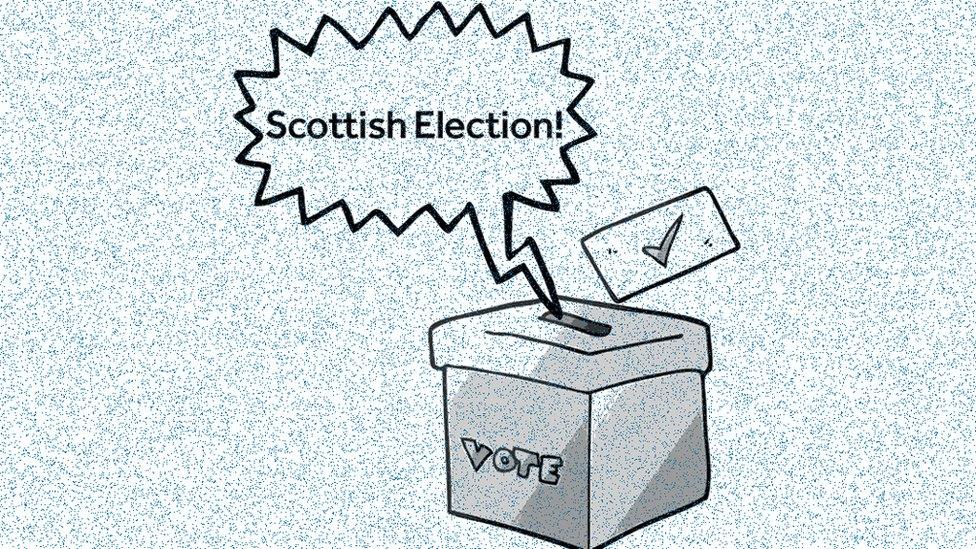Votes at 16 and 'gayest parliament': Five facts about the Scottish Election
- Published

Scotland has already seen a referendum on independence and a general election in the last 18 months - but now it's decision time again.
On 5 May millions will vote in the Scottish elections to elect the new parliament, known as Holyrood.
There's a lot riding on the result: The Scottish National Party will hope to continue its dominance of Scottish politics, Labour needs to win back lost support and the Scottish Conservatives hope 2016 could be their breakthrough year.
We've picked out five interesting things about the Scottish Election 2016.
16-year-olds can vote

Jamie-Lee Efomi turned 16 in April and is looking forward to casting her first vote
For the first time in a major UK election people as young as 16 are going to be able to have their say.
It follows the 2014 Scottish independence referendum when the voting age was lowered from 18 and more than 100,000 16 and 17-year-olds registered to have their say.
Last summer, external Scottish Members of Parliament unanimously agreed to change the law to permanently lower the age for all future Holyrood elections.
Jamie-Lee Efomi from Glasgow only turned 16 a few weeks before polling day and is still unsure of how she'll vote: "More young people have wanted to be involved for a long time and we finally have that chance to impact how our country is run. It's an amazing feeling."
The next Scottish government will be more powerful than ever

The majority of Scotland may have said "No" to independence but its parliament is still getting a stack of new powers to add to the decisions it already makes on things like education, justice and health.
The biggest change is that the next Scottish government will have control over more tax rules and it will allow the Scottish parliament to increase income tax for the rich if it wanted to.
Scotland will also have control over some benefits payments and money raised from VAT in Scotland will be used for the Scottish government's budget.
Tuition fees are still a big talking point

Scottish Conservative leader Ruth Davidson wants to end free university tuition
If you're a Scottish student attending a Scottish university then you don't have to pay any fees.
However, the Conservatives want to shake up the system and end free tuition.
They want graduates to pay back £6,000 towards their education once they are earning more than £20,000 a year.
They say they would spend the money on getting more people into university and funding the college bursary system.
The other main parties are committed to free university education but Labour are promising to put taxes up to put more money into the Scottish education system.
Three of the main party leaders are women

Left to right: Conservative leader Ruth Davidson, Labour leader Kezia Dugdale and SNP leader Nicola Sturgeon
When it comes to breaking the stereotype of politics being about "men in suits", Scotland is leading the way.
It's more than 26 years since a Westminster party had a female leader, the former Conservative Prime Minister Margaret Thatcher.
Not only does is there a female first minister in Nicola Sturgeon but both the Labour Party and the Conservatives also have female leaders in Kezia Dugdale and Ruth Davidson.
Scotland has the world's 'gayest parliament'
That was the phrase used by Labour leader Kezia Dugdale earlier this month when she revealed she had a female partner.
It means Scotland is the only country in the world where the majority of its political leaders are LGBT.
Tory leader Ruth Davidson and UKIP Scotland's David Coburn are also gay, while Green Patrick Harvie is bisexual.
The Labour leader says she's been 'bowled over' by support since revealing she was gay. , external
Find us on Instagram at BBCNewsbeat, external and follow us on Snapchat, search for bbc_newsbeat